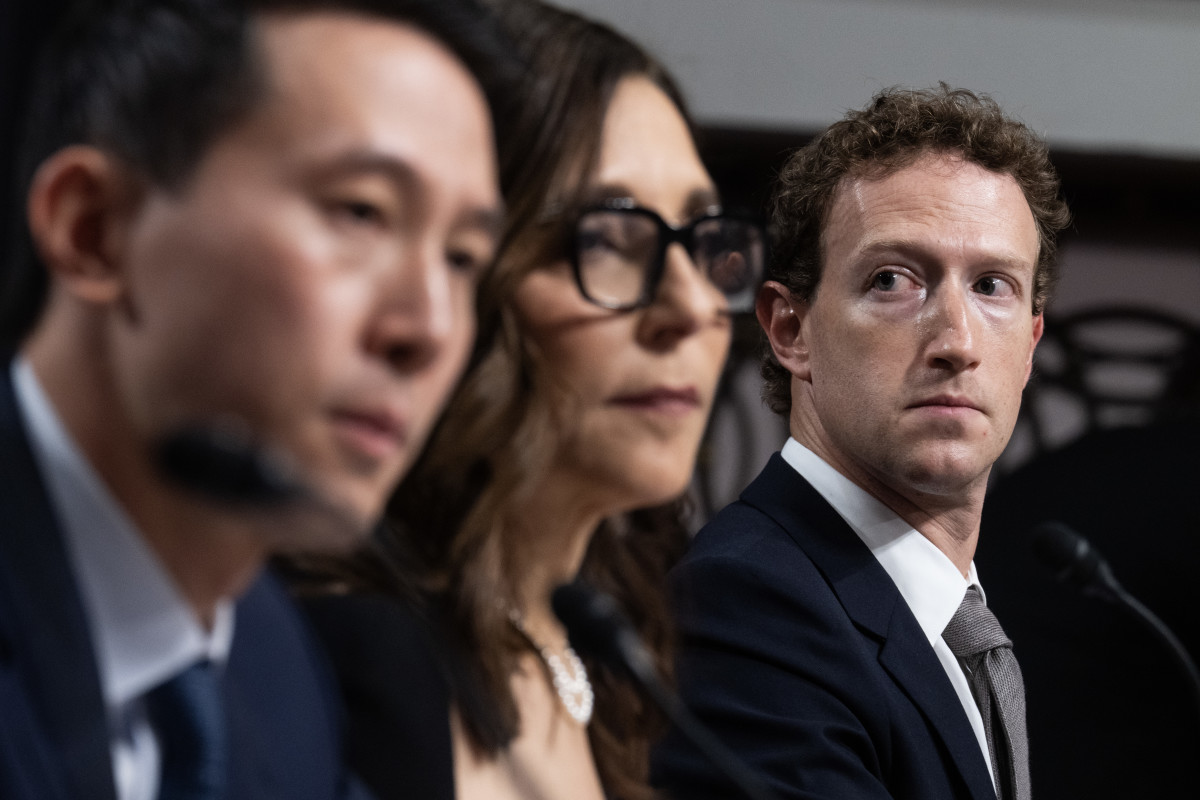
This story was initially published as a part of Tech News Now, TheStreet's daily tech rundown.
Roughly three years ago, following the decision by some social media platforms — notably Twitter — to ban former President Donald Trump after the Jan. 6, 2021 attack on the Capitol, two Republican states signed bills designed to curb Big Tech's social media content moderation efforts.
The laws, instated by Texas and Florida, differ in their details, though both seek to prevent "unfair" censorship by Big Tech, specifically against conservative perspectives. The Florida law — SB 7072 — additionally prohibits Big Tech from de-platforming Floridian political candidates.
Related: Deepfake program shows scary and destructive side of AI technology
"If Big Tech censors enforce rules inconsistently, to discriminate in favor of the dominant Silicon Valley ideology, they will now be held accountable," Florida Governor Ron DeSantis said at the time.
NetChoice and the Computer & Communications Industry Association, two groups that represent a roster of Big Tech names including Meta, have challenged the laws, arguing that they are in violation of First Amendment rights.
Central to the case is the question of whether social media platforms ought to be regarded as news publishers, which would grant them editorial freedom, or telecommunications companies, which would require them to transmit all speech.
"Just as Florida may not tell the New York Times what opinion pieces to publish or Fox News what interviews to air, it may not tell Facebook and YouTube what content to disseminate," the groups said. "When it comes to disseminating speech, decisions about what messages to include and exclude are for private parties — not the government — to make."
The states have argued the opposite; citing the importance of social media as a digital town square, they have argued that the platforms ought to be treated like telephone companies.
The groups representing the companies have additionally argued that the laws in question would allow the dissemination of "objectionable viewpoints," including propaganda and hate speech.
Related: Tech News Now: Big Tech lands at the Supreme Court, Meta's disinformation team, and more
Elon Musk, Twitter and algorithms
The Supreme Court on Monday heard oral arguments pertaining to the two laws in question.
A key focus for the justices involved determining whether content moderation could be considered "expressive," something that would strengthen the case for the protection of the practice under the First Amendment, according to the Washington Post.
Justice Elena Kagan referenced Elon Musk's transfiguration of Twitter into X, suggesting that content moderation policies seem to impact the overall experience of a given platform.
“Twitter users one day woke up and found themselves to be X users,” Kagan said. The “rules had changed and their feeds changed. … And all of a sudden they were getting a different online newspaper, so to speak, every morning.”
Justices also questioned the role of social media algorithms as they relate to the expression, or lack thereof, of content moderation policies.
Justice Amy Coney Barrett, citing a hypothetical example of a TikTok algorithm boosting pro-Palestinian posts over pro-Israel posts, said: "If you have an algorithm do it, is it not speech?"
More deep dives on AI:
- ChatGPT maker says 'it would be impossible' to train models without violating copyright
- Copyright expert predicts result of NY Times lawsuit against Microsoft, OpenAI
- Meta and IBM team up against dominant Big Tech players
The broadness of the laws was additionally questioned by the justices, who brought up their application to other platforms, including Uber, Etsy and Google Search.
Kagan suggested she may agree that the Florida law is unconstitutional as applied to a Facebook feed, but that it might hold as applied to services such as Uber.
Justices Ketanji Brown and Sonia Sotomayor each questioned the broadness of the laws, with Brown raising concerns over the broadness of the arguments made on behalf of the platforms, as well.
“This is so, so broad. It’s covering almost everything,” Sotomayor said of the laws. “The one thing I know about the internet is that its variety is infinite.”
The court is expected to decide the cases by June.
Related: Scientists, executives call for regulation of a dangerous new technology
Expert legal opinion
Several prominent liberal professors from Harvard, Columbia and Fordham filed a brief last month that took a more middle-of-the-line approach, acknowledging the merit of one component of the Texas law while stating that the laws could still lead to "amplified hate speech."
“To put a fine point on it: Facebook, Twitter, Instagram and TikTok are not newspapers,” the professors said. “They are not space-limited publications dependent on editorial discretion in choosing what topics or issues to highlight. Rather, they are platforms for widespread public expression and discourse. They are their own beast, but they are far closer to a public shopping center or a railroad than to The Manchester Union Leader.”
The Reporters Committee for Freedom of the Press has referred to the laws as "dangerous infringements on First Amendment-protected editorial discretion."
Richard L. Hasen, legal scholar and professor at the University of California, Los Angeles, said in a brief that the platforms' editorial choices are fully protected by the First Amendment, adding that such laws as the ones in question could "foment violence."
"Florida’s and Texas’s social media laws, if allowed to stand, would thwart the ability of platforms to moderate social media posts that risk undermining U.S. democracy and fomenting violence," he said.
Contact Ian with AI stories via email, ian.krietzberg@thearenagroup.net, or Signal 732-804-1223.







